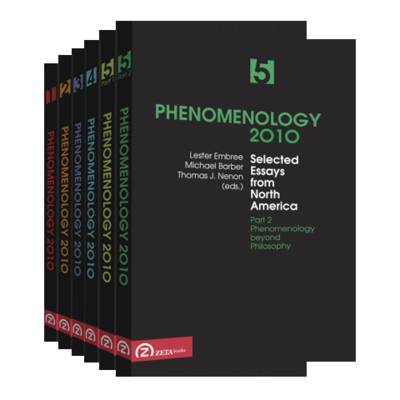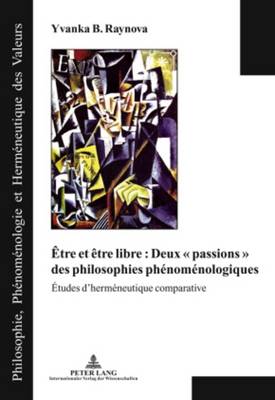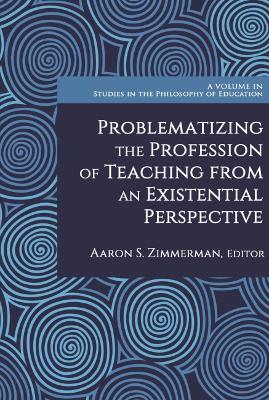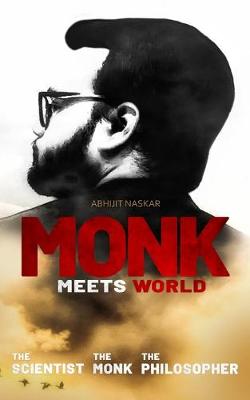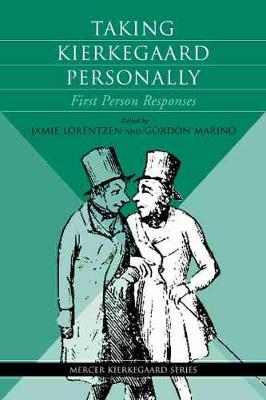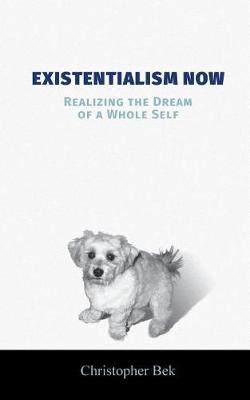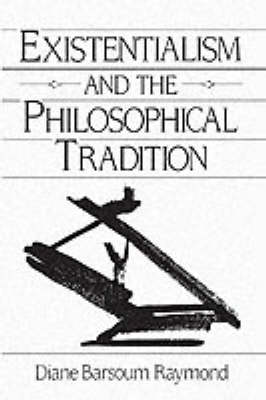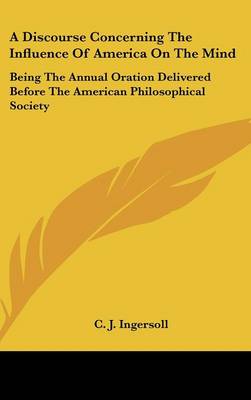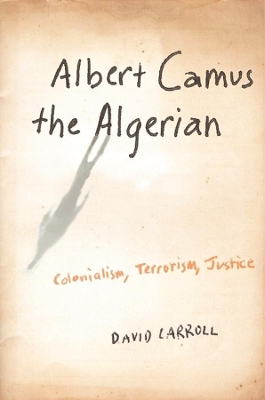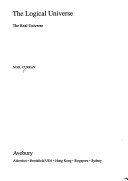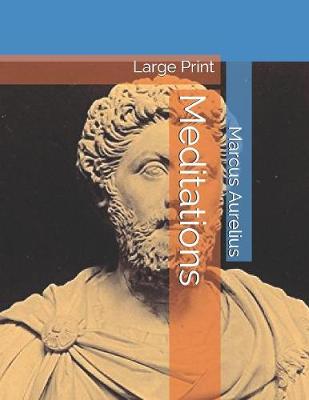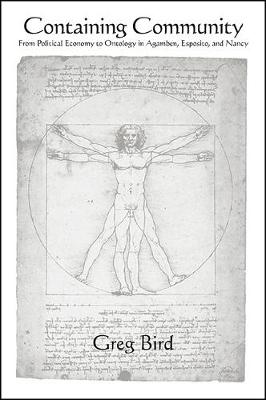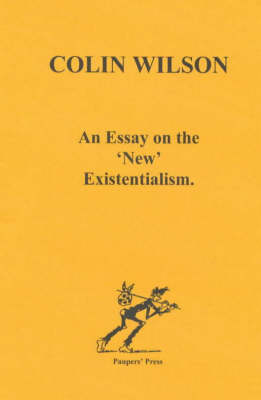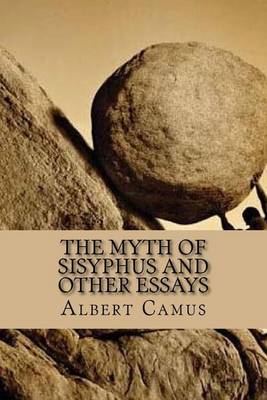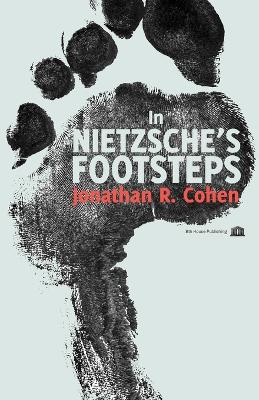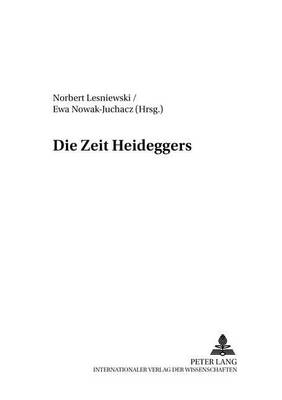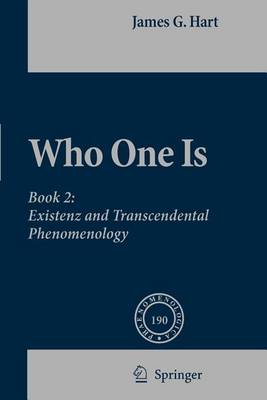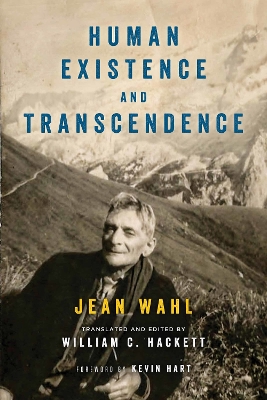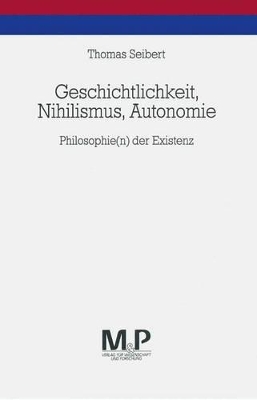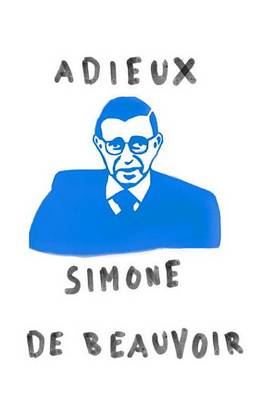Phenomenology Complete Set 5+1 Volumes
by Dermot Moran, Hans Rainer Sepp, and Lester Embree
La tentative de Husserl de fonder la philosophie comme " science rigoureuse " ainsi que certains principes de sa phenomenologie ont ete remis en question par plusieurs de ses successeurs. La premiere partie du livre qui est consacree a la question fondamentale de l'Etre presente au moyen d'une comparaison hermeneutique differentes relectures de la methode husserlienne et de l'ontologie heideggerienne, relectures qui ont contribue aux " tournants " essentiels de la philosophie phenomenologique. L...
Teachers not only serve as caretakers for the students in their classroom but also serve as stewards for society's next generation. In this way, teachers are charged with responsibility for the present and the future of their world. Shouldering this responsibility is no less than an existential dilemma that requires not only professional solutions but also personal responsibility rooted in subjective authenticity. In the edited volume, authors will explore how the philosophy of Existentialism ca...
Taking Kierkegaard Personally (Mercer Kierkegaard)
Taking Kierkegaard Personallyis a one-of-a-kind volume in which scholars from the world over address personal, existential lessons that Kierkegaard has taught them. Papers were selected from the June 2018 International Kierkegaard Conference, sponsored by the Howard V. and Edna H. Hong Kierkegaard Library at St. Olaf College. The Conference's prompt-The Wisdom of Kierkegaard: What Existential Lessons Have You Learned from Him?-compelled scholars to drop their guards and write primarily in first...
An in-depth anthology of the existentialist tradition - with an emphasis on the philosophy of personal experience.
The Complete Works of Jean-Jacques Rousseau
by Jean-Jacques Rousseau
A Discourse Concerning the Influence of America on the Mind
by C J Ingersoll
In these original readings of Albert Camus' novels, short stories, and political essays, David Carroll concentrates on Camus' conflicted relationship with his Algerian background and finds important critical insights into questions of justice, the effects of colonial oppression, and the deadly cycle of terrorism and counterterrorism that characterized the Algerian War and continues to surface in the devastation of postcolonial wars today. During France's "dirty war" in Algeria, Camus called for...
The central concept of the system of philosophy developed in this text is that of meaning. This is applied to logic as a theory of meaning, rather than the proof theory of formal logic. Time is assymetric - an arrow. This concept is applied to the laws of nature which have no arrow of time. In the philosophy of mathematics the same emphasis is on meaning using the ideas of Sir William Rowan Hamilton on the ordinal character of numbers, the real numbers, the scalar numbers and the extension to ve...
Meditations (Clydesdale Classics) (Capstone Classics)
by Marcus Aurelius
It was during his campaigns against the barbarians that the Roman emperor, Marcus Aurelius, wrote his famous "Meditations". They record the passing thoughts, the maxims and the musings on life and death of a sensitive and humble mind which had been trained in that stoic philosophy which contributed so much to Christianity. In this translation from the scholarly Greek in which Marcus kept his private journal, Staniforth gives us a simple and straightforward version of a work which has often been...
Containing Community (SUNY series in Contemporary Italian Philosophy)
by Greg Bird
Die Zeit Heideggers behandelt sowohl Zeit und Temporalitat als Schwerpunkte der ersten Periode Heideggerschen Denkens als auch die Umstande und den einmaligen Zeitraum, in dem das Phanomen "Heidegger" zu Stande kam und sich, wenigstens zum grossen Teil, entwickelt hat. Die Autoren sowie die Herausgeber haben sich zum Ziel gesetzt, den Zusammenhang von Philosophie, Existenz, Geschichte und Politik zu verdeutlichen und ferner auch die Auseinandersetzungen zwischen Heidegger und seinen Zeitgenossen...
If I am asked in the framework of Book 1, "Who are you?" I, in answering, might say "I don't know who in the world I am." Nevertheless there is a sense in which I always know what "I" refers to and can never not know, even if I have become, e.g., amnesiac. Yet in Book 2, "Who are you?" has other senses of oneself in mind than the non-sortal "myself". For example, it might be the pragmatic context, as in a bureaucratic setting; but "Who are you?" or "Who am I?" might be more anguished and be rend...
In the same spirit as his most recent book, Living With Nietzsche, and his earlier study In the Spirit of Hegel, Robert Solomon turns to the existential thinkers Albert Camus and Jean-Paul Sartre, in an attempt to get past the academic and political debates and focus on what is truly interesting and valuable about their philosophies. Solomon makes the case that--despite their very different responses to the political questions of their day--Camus and Sartre were both fundamentally moralists, and...
William C. Hackett's English translation of Jean Wahl's Existence humaine et transcendence (1944) brings back to life an all-but-forgotten book that provocatively explores the philosophical concept of transcendence. Based on what Emmanuel Levinas called "Wahl's famous lecture" from 1937, Existence humaine et transcendence captured a watershed moment of European philosophy. Included in the book are Wahl's remarkable original lecture and the debate that ensued, with significant contributions by Ga...
Simone de Beauvoir’s account of the last ten years of Jean-Paul Sartre’s life provides a focus for understanding one of the greatest thinkers of the twentieth century. But the book, consisting of both a year-by-year account of Sartre’s last decade and a conversation between him and de Beauvoir about his life and work, is more than just a philosophical examination. It is also a personal dialogue of astonishing frankness that illuminates one of the most famous and complex relationships of the twen...
